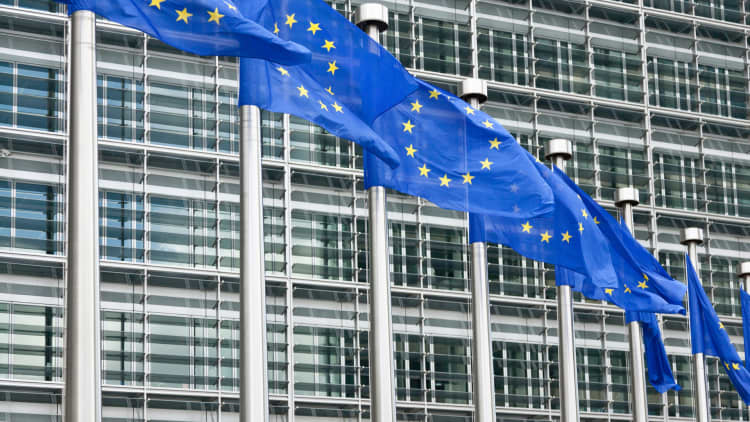The Bank of England (BOE) has attacked the European Union (EU) for risking the possibility that £29 trillion ($38 trillion) worth of derivatives could becoming untradeable after March next year.
In its Financial Stability Report, published Wednesday, the U.K. central bank said that while the British government had committed to a temporary permissions regime from March 2019 onwards, the EU had, as yet, made no corresponding promise. Britain is set to leave the bloc on March 29, 2019.
The BOE said the biggest Brexit risk to financial services remained where both the EU and U.K. needed to act, such as ensuring the continuity of existing derivatives. In the report, the bank said that the EU had not “indicated a solution analogous to a temporary permissions regime.”
The bank estimated that this could affect about a quarter of over-the-counter derivative contracts between the U.K. and the European Economic Area (EEA), with a notional value of around £29 trillion. Of that amount, around £16 trillion is due to mature after Britain leaves the EU. A derivative is a contract between two or more parties whose value is based on an underlying financial asset like stocks, bonds, commodities, currencies or interest rates.
"The U.K. government has committed to legislate, if necessary, to allow EEA counterparties to continue servicing contracts with U.K. entities (through a temporary permissions regime and additional legislation if required)," the report said. "EU authorities have not announced an intention to enable U.K. counterparties to continue servicing contracts with counterparties in the EEA.”

The BOE accusation could be seen as a response to EU criticism last week that claimed U.K. banks were not prepared for a hard Brexit.
Speaking to reporters following the report’s release, Bank of England Governor Mark Carney said that the EU regulator's Brexit assessment was "incomplete." "They did not acknowledge the temporary permissions regime, which has been very clearly signaled by the U.K. government,” Carney added.
The BOE report claimed that major U.K. banks had tripled their capital strength since 2007 and the system as a whole could sustain the British economy in a disorderly Brexit.


